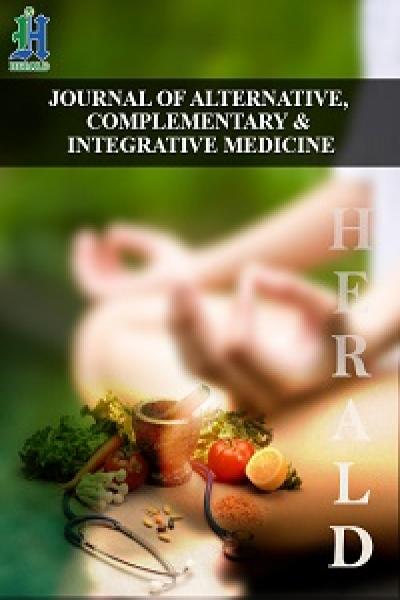
Rehabilitation Application Research for Postoperative Cognitive Dysfunction in Cardiac Surgery
*Corresponding Author(s):
Yang-Zheng LiDepartment Of Rehabilitation Medicine, Sir Run Run Shaw Hospital, School Of Medicine, Zhejiang University, No.3 Qingchun East Road, Hangzhou, Zhejiang, China
Tel:+86 057186006054,
Email:yangzheng.li@zju.edu.cn
Postoperative Cognitive Impairment (POCD) has always been a major challenge for the postoperative recovery and quality of life of elderly patients undergoing cardiac surgery, and alternative therapies besides medication are becoming increasingly important [1]. In confronting this challenge, a review by Zhang et al. provides insights and comprehensive management strategies [2]. This study not only summarizes the complex pathomechanisms of POCD, including cerebral microembolism, neuroinflammation, and cryptogenic stroke, but also highlights the importance of risk factors such as preoperative cognitive status, age, and anesthetic factors, and proposes an integrated and comprehensive screening and rehabilitation strategy. This is essential for preoperative assessment and perioperative management to help identify high-risk patients and proactively take preventive measures.
The discussion of cognitive function screening tools such as the MMSE, MoCA, and CDR in the study highlights the importance of early identification of cognitive changes. The use of these tools offers the potential for timely intervention, especially in patients with preoperative cognitive impairment and dementia. In addition, the review highlights the need for a more comprehensive assessment of these patients, including activities of daily living and psycho-behavioral symptoms. In terms of rehabilitation strategies, Zhang et al. proposed a combination of methods, including cognitive function training, exercise training, transcranial Direct Current Stimulation (tDCS), perioperative acupuncture, and Virtual Reality (VR) techniques. These approaches are proposed based on existing scientific evidence and consider the potential of emerging technologies in cognitive rehabilitation. And VR, in particular, shows great potential in cognitive rehabilitation by increasing patient engagement and interest through the creation of three-dimensional scenarios [3,4].
Although the studies provided valuable insights, they also pointed out the limitations of the inadequate sample sizes and lack of long-term follow-up data in many studies. This suggests that although the current findings are illuminating, more research is needed to validate the effectiveness of these rehabilitation strategies, especially in terms of long-term prognosis.
Zhang et al., study provides a multidimensional framework for the management of POCD, from pathophysiology to rehabilitation strategies. This work is not only instructive for clinicians and rehabilitation therapists, but also provides new ideas for future research directions. With the development of technology and deeper understanding of POCD, we expect to develop more innovative rehabilitation methods to improve cognitive function and quality of life in elderly patients after cardiac surgery [5].
POCD will become an increasingly important public health issue in the face of the challenges of an aging population [6]. Therefore, investing in research in this area is not only a medical but also a pressing social and economic need. By improving our understanding and ability to manage POCD, we can provide better care for elderly cardiac surgery patients, improve their quality of life, and reduce the burden on the healthcare system. The review by Zhang et al. is an important step that not only improves our understanding of POCD, but also provides a solid foundation for future research and clinical practice. With more research and the application of new technologies, we have reason to believe that even greater progress will be made in cognitive rehabilitation for elderly patients after cardiac surgery. It may also provide an important reference for the understanding and management of POCD in non-cardiac surgery patients. By identifying shared risk factors, emphasizing the importance of early intervention, and proposing a multimodal rehabilitation strategy, this study provides a scientific basis and new ideas for the treatment of cognitive recovery in patients after noncardiac surgery.
Acknowledgement
None.
Conflict of Interests
There is no conflict of interest in this article.
Funding
This research did not receive any specific grant from funding agencies in the public, commercial, or not-for-profit sectors.
References
- Mehta Y, Singh R (2010) Cognitive Dysfunction after Cardiac Surgery. Journal of Alzheimer's Disease 22: 115-120.
- Zhang Z, Li Y, Wu X, Chen W, Xu J, et al. (2024) Postoperative cognitive dysfunction in elderly postcardiac surgery patients: progress in rehabilitation application research. Frontiers in rehabilitation sciences 5: 1525813.
- Moreno A, Wall KJ, Thangavelu K, Craven L, Ward E, et al. (2019) A systematic review of the use of virtual reality and its effects on cognition in individuals with neurocognitive disorders. Alzheimer's & dementia: translational research & clinical interventions 5: 834-850.
- Zhu S, Sui Y, Shen Y, Zhu Y, Ali N, et al. (2021) Effects of Virtual Reality Intervention on Cognition and Motor Function in Older Adults With Mild Cognitive Impairment or Dementia: A Systematic Review and Meta-Analysis. Front Aging Neurosci 13: 586999.
- Needham MJ, Webb CE, Bryden DC (2017) Postoperative cognitive dysfunction and dementia: what we need to know and do. British journal of anaesthesia: BJA 119: 115-125.
- Bhushan S, Li Y, Huang X, Cheng H, Gao K, et al. (2021) Progress of research in postoperative cognitive dysfunction in cardiac surgery patients: A review article. Int J Surg 95: 106163.
Citation: Li Y-Z, Zhang Z-R (2025) Rehabilitation Application Research for Postoperative Cognitive Dysfunction in Cardiac Surgery. J Altern Complement Integr Med 11: 542.
Copyright: © 2025 Yang-Zheng Li, et al. This is an open-access article distributed under the terms of the Creative Commons Attribution License, which permits unrestricted use, distribution, and reproduction in any medium, provided the original author and source are credited.

